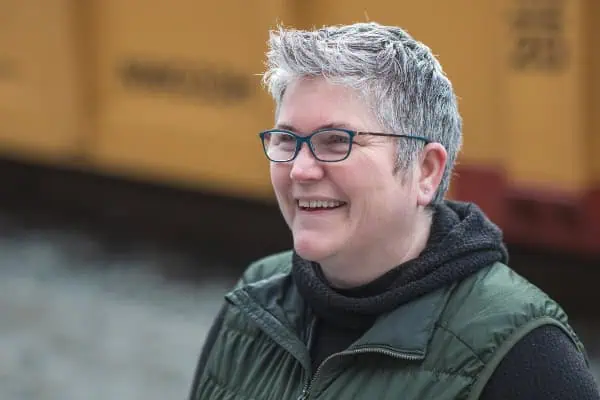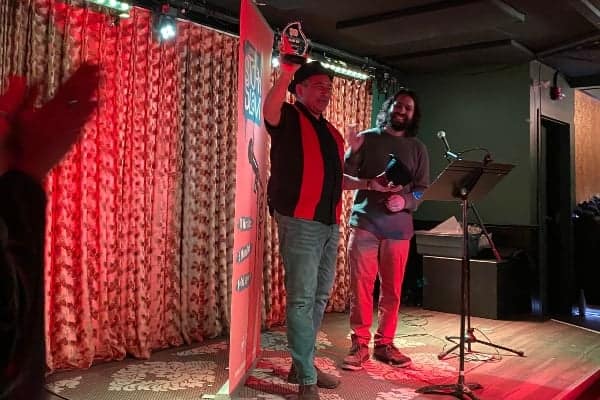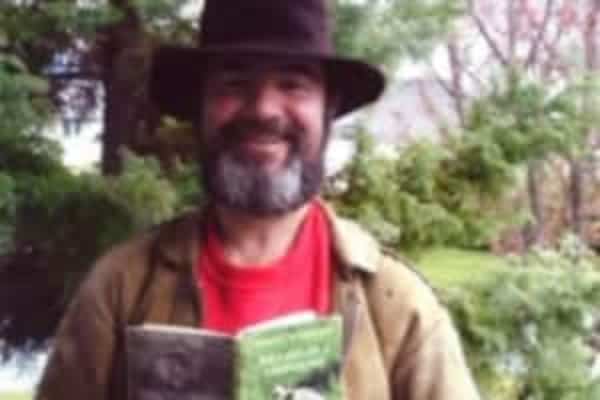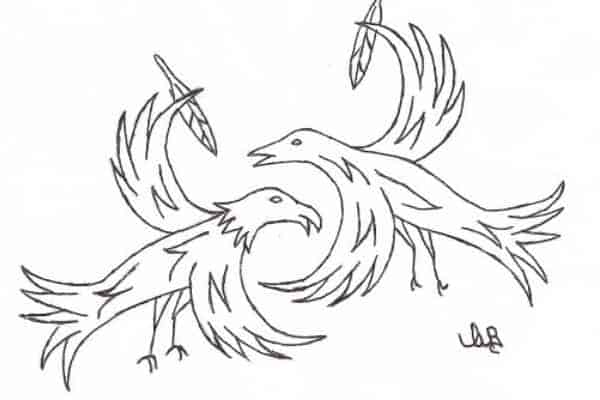Joanna Lilley has always loved reading. She’s one of those people that you’ll find in the theatre reading a book before the movie begins. It fits that she would also enjoy writing.
“As a child, I also always loved writing in notebooks and diaries and the physical act of writing with pen and paper.” Later on, that translated to pushing the keys on typewriters and keyboards.
“As an introvert, I often felt that writing came more easily to me than talking and it still feels that way. I feel most myself when I’m writing.”
It stands to reason that this affection influenced her academic and professional choices, though it took her a while to come around to accepting that she was a writer. Growing up in the UK may have contributed to this. The class structure there made her think it was too pretentious to consider herself a writer. Lilley migrated to journalism and public sector communications. Her day job for the last 11 years has been as a senior communications advisor for the Yukon Government.
“Working with words so much helped me to build up my confidence over the years and I very slowly come out of the closet as a writer who wrote creatively.”
At this point, Lilley has two poetry collections, a book of short stories and a novel, with another poetry book on the way. Though being published is a great confidence-builder, she’s come to think that it’s the act of writing that defines a person the most.
“I believe that anyone who writes and has a passion for writing is indeed a writer. It is the act of writing that makes you a writer, not what you may or may not have had published.”
Writing is critical to her sense of self and well-being.
“I feel a compulsion to write that I think would exist even if I never was able to get anything published. This sounds a bit grandiose, but writing connects me to myself and helps me cope with life. I don’t know what I’d do without it. It’s the thing I love doing most.”
Her subjects come from life, “the everyday, ordinary experience of living.”
“I’m preoccupied with how to articulate a response to what’s happening to people, animals and the natural environment all around the world. Ultimately, I’m interested in trying to articulate that response through stories, whether in fiction or poetry, and through different points of view, including animals’ perspectives.”
She likes to write first thing every day, though that isn’t always possible. She finds that the act of writing creates more writing and stimulates ideas that might not come to her otherwise. Her time preference means weekends are best for her.
“I try to write on Saturday and Sunday mornings before I start doing all the things I really ought to be doing, like vacuuming, washing, responding to emails and so on. If I do those things first then the writing slips away from me. Sometimes I think I’ve mastered the skill of ignoring the dust and dirt and errands and chores a bit too well!”
Her writing process varies with her projects. Both fiction and poetry require some research, but the former needs more planning and the latter is more spontaneous. She usually has more than one project on the go, sometimes quite different work. Currently she is preparing that next book of poems and writing another novel.
“When other ideas for poems or stories or themes pop into my head, I make a note and hope that those ideas are percolating somewhere in my subconscious, ready for when I can pay them greater attention.”
Lilley was one of the mentors at this year’s Young Authors’ Conference, which was held at F.H. Collins High School on May 2 and 3. She also read at the Live Words public reading on May 1, joining fellow mentor authors David Geary, Sigmund Brewer, Heather O’Neill and Jan Redford, the Public Library’s travelling writer.
In her sessions at F.H. Collins, she had this advice for her workshop group.
“If you have an interest in writing, you should simply spend time writing and spend time reading. You don’t even need to have a plan for your writing. Just start writing whatever comes into your head, however trivial and mundane, and just keep writing and see what happens.”




